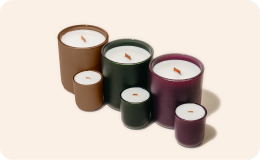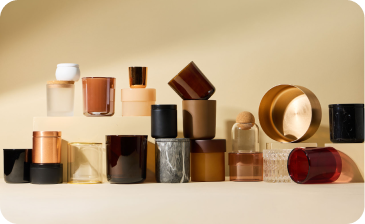Understanding Soap Labeling Requirements
Hey, soap makers! Today, we're diving into the bubbly world of soap labeling. Whether you're just starting your soap making journey or you've been in the game for a while, understanding how to label your soapy creations correctly is crucial. Not only does it keep you compliant with regulations, but it also gives your products a professional touch that customers appreciate. So, grab your favorite cup of tea (or coffee, we don’t judge!) and let’s unravel the mysteries of soap labeling together!
1. Know Your Product: Is it a Cosmetic, a Drug, or Just Soap?
First things first, it’s important to determine how your soap is classified, as this affects the labeling requirements. In the eyes of regulatory bodies like the FDA (U.S. Food and Drug Administration), a product is generally considered a soap if it cleanses and it’s made of fats and an alkali. These soaps only need to be labeled with the net weight, identity ("soap"), and the place of manufacture or distribution.
However, if your soap claims to moisturize the skin, exfoliate, or provide any other cosmetic benefits, it’s also considered a cosmetic. And if you suggest that your soap can treat or prevent diseases (like acne or eczema), it’s classified as a drug. Products that are both cosmetics and drugs must meet more specific labeling requirements, including ingredients, business name, and more.
2. List of Ingredients: Keep it Transparent
Transparency is key in building trust with your customers. If your soap is considered a cosmetic, you must list all ingredients in descending order of predominance. If it contains botanicals, essential oils, or other additives, they should be clearly mentioned. This not only helps in showcasing the quality of your products but also ensures that customers with allergies or sensitivities can make informed choices.
3. Net Weight: Keep it Honest
The net weight tells your customers exactly how much soap they're getting. This should be listed in both imperial (ounces) and metric (grams) units to accommodate a broad audience. Ensure that the weight is accurate and visible on the packaging—it’s a small detail that speaks volumes about your brand's integrity.
4. Manufacturer Information: A Window to Reach You
Don’t forget to include your contact information on the label. This typically includes your business name and address. It's not just a legal requirement; it's also a way for customers to know where their beloved products come from, and how to reach you for more!
5. Claims: Say it Right
If you’re making any claims about your soap, be sure they are truthful and not misleading. Claims like "natural," "organic," or "hypoallergenic" should be verifiable. Misleading claims can lead to regulatory issues and damage your brand’s reputation.
6. Creative Labels: Your Brand’s Handshake
Last but definitely not least, the design of your soap labels is your chance to make a memorable first impression. While it’s important to stay compliant with the necessary information, don’t hold back on expressing your brand’s personality. Use colors, fonts, and images that reflect your brand’s ethos and appeal to your target audience.
Wrap-Up
Labeling might seem like a small part of the soap making process, but it’s incredibly significant! Correctly labeled products not only comply with legal requirements but also enhance customer trust and satisfaction. If you’re unsure about the specifics, consulting with a professional or referring to the FDA’s website can be great places to start.
Be sure to tag us in your finished creations on Instagram using #makesymade for a chance to get featured on our wall of inspo & win a $100 makesy gift card.
Happy soap making, and remember, each bar of soap is a reflection of your craft and passion—make it count from the inside out!








